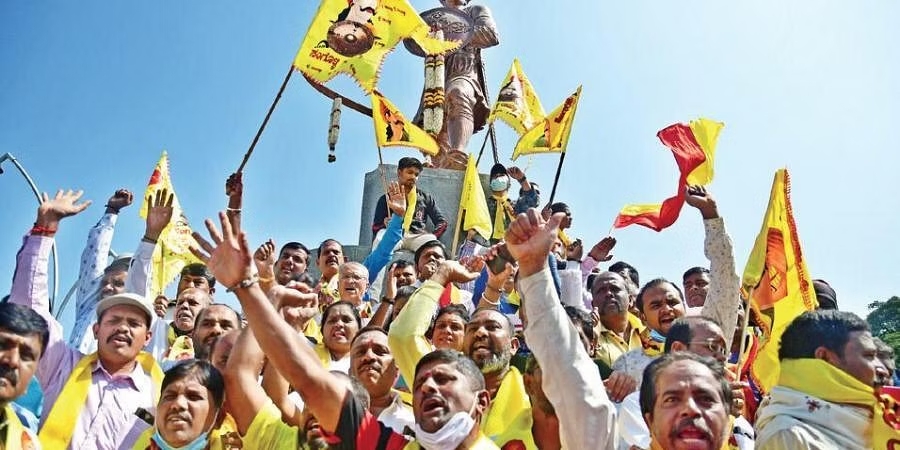Bengaluru, India: In Bengaluru, the capital metropolis of Karnataka, a latest directive from the Bruhat Bengaluru Mahanagara Palike (BBMP) has sparked widespread controversy and protests. The directive mandates that every one industrial institutions show at the least 60% of their signboards in Kannada, the native language. This transfer, geared toward selling the regional language, has led to a major conflict between pro-Kannada teams and people opposing the directive.
The BBMP’s chief commissioner, Tushar Giri Nath, has said that authorized motion will probably be taken towards outlets that fail to adjust to this directive by February 28. This choice has fueled the continuing Hindi vs. Kannada language row within the state. The directive’s enforcement has been met with resistance, notably from companies that historically use English or Hindi on their signboards.
Professional-Kannada teams have taken to the streets in protest, demanding the rapid implementation of the BBMP’s order. These protests have turned violent in some areas, with demonstrators tearing down and defacing English language boards, in line with Monetary Categorical. The protests have been widespread, occurring in varied elements of Bengaluru, together with the Kempegowda Worldwide Airport.
The language row in Karnataka will not be a brand new concern however has been reignited by the BBMP’s latest directive. The state has a historical past of linguistic pleasure, with Kannada audio system typically advocating for the preservation and promotion of their language. This newest growth is seen as a major step in that course, albeit a controversial one.
The state of affairs in Bengaluru displays a broader debate in India in regards to the position of regional languages versus nationwide and worldwide languages in public and industrial areas. Whereas the promotion of native languages is seen as essential for cultural preservation, the enforcement strategies, such because the BBMP’s directive, have raised questions on linguistic rights and the sensible implications for companies working in a multilingual society.
Because the deadline for compliance approaches, the strain in Bengaluru continues to escalate, with each side of the controversy standing agency of their positions. The end result of this language row will probably be a major indicator of the course by which India’s linguistic insurance policies and practices are headed.

